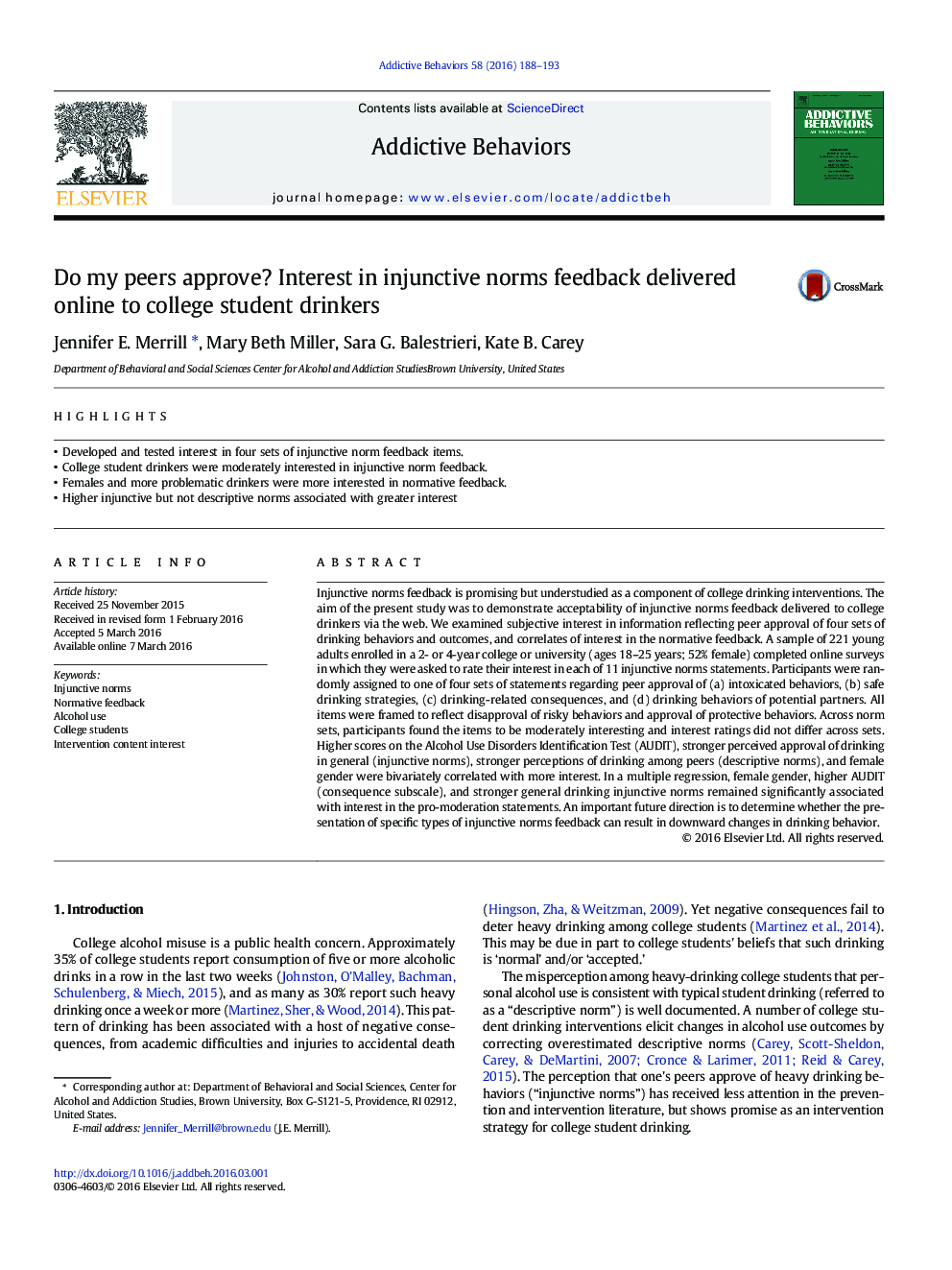| Article ID | Journal | Published Year | Pages | File Type |
|---|---|---|---|---|
| 7260303 | Addictive Behaviors | 2016 | 6 Pages |
Abstract
Injunctive norms feedback is promising but understudied as a component of college drinking interventions. The aim of the present study was to demonstrate acceptability of injunctive norms feedback delivered to college drinkers via the web. We examined subjective interest in information reflecting peer approval of four sets of drinking behaviors and outcomes, and correlates of interest in the normative feedback. A sample of 221 young adults enrolled in a 2- or 4-year college or university (ages 18-25Â years; 52% female) completed online surveys in which they were asked to rate their interest in each of 11 injunctive norms statements. Participants were randomly assigned to one of four sets of statements regarding peer approval of (a) intoxicated behaviors, (b) safe drinking strategies, (c) drinking-related consequences, and (d) drinking behaviors of potential partners. All items were framed to reflect disapproval of risky behaviors and approval of protective behaviors. Across norm sets, participants found the items to be moderately interesting and interest ratings did not differ across sets. Higher scores on the Alcohol Use Disorders Identification Test (AUDIT), stronger perceived approval of drinking in general (injunctive norms), stronger perceptions of drinking among peers (descriptive norms), and female gender were bivariately correlated with more interest. In a multiple regression, female gender, higher AUDIT (consequence subscale), and stronger general drinking injunctive norms remained significantly associated with interest in the pro-moderation statements. An important future direction is to determine whether the presentation of specific types of injunctive norms feedback can result in downward changes in drinking behavior.
Related Topics
Life Sciences
Neuroscience
Behavioral Neuroscience
Authors
Jennifer E. Merrill, Mary Beth Miller, Sara G. Balestrieri, Kate B. Carey,
